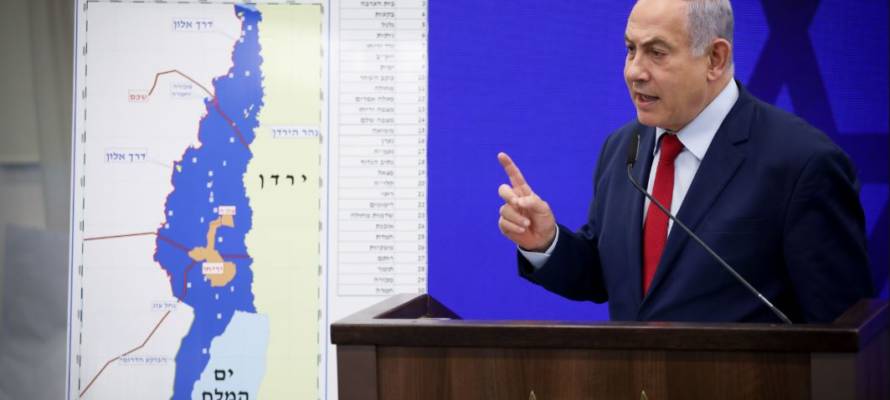Netanyahu Requests ‘Clear Mandate’ to Apply Sovereignty Over Jordan Valley, Judea, Samaria
2019-09-13
Originally Published at: United With Israel
A week ahead of the Israeli national election, Netanyahu asked for a “clear mandate” to apply sovereignty over the Jordan Valley and the Dead Sea area, working together with the Trump administration, and eventually over Judea and Samaria.

In a dramatic announcement Tuesday evening, Prime Minister Benjamin Netanyahu vowed – if reelected – to apply sovereignty over “Judea and Samaria and other areas,” starting with the Jordan Valley and the Dead Sea region.
US President Donald Trump has said he will present his “deal of the century” after the national election next Tuesday. According to Netanyahu, this “presents both a challenge and an opportunity – a historic, one-time opportunity” for sovereignty in Judea and Samaria.
The question, he said, is, “Who will handle the negotiations with the US? Will it be me or [Blue and White party leader Benny] Gantz and [Yair] Lapid?”
The Blue and White leaders have said they would remove 80,000 “settlers” from Judea and Samaria, Netanyahu added, while he would not remove even one.
Israel’s best interests would be served by Netanyahu’s warm relationship with Trump and other world leaders, the prime minister said.
“I must tell you before, not after, the elections what I intend to do. I’m asking for a clear mandate…to define at long last Israel’s permanent borders, promising that Judea and Samaria don’t turn into Gaza,” Netanyahu stated.
“If I get that clear mandate, I will start immediately after the election,” he said. “The Jordan Valley and north of the Dead Sea – this is the eastern border of the State of Israel, like the Golan in the north. It is our security belt in the east.”
According to the Israel Democracy Institute’s Israeli Voice Index, “48% of Jewish Israelis and 11% of Arab Israelis would favor such a plan if it were supported by US President Donald Trump and his administration. This compares to 28% of Jewish Israelis and 56% of Arab Israelis who oppose this idea. Almost a quarter Jewish Israelis and one third of Arab Israelis remain undecided on this matter.